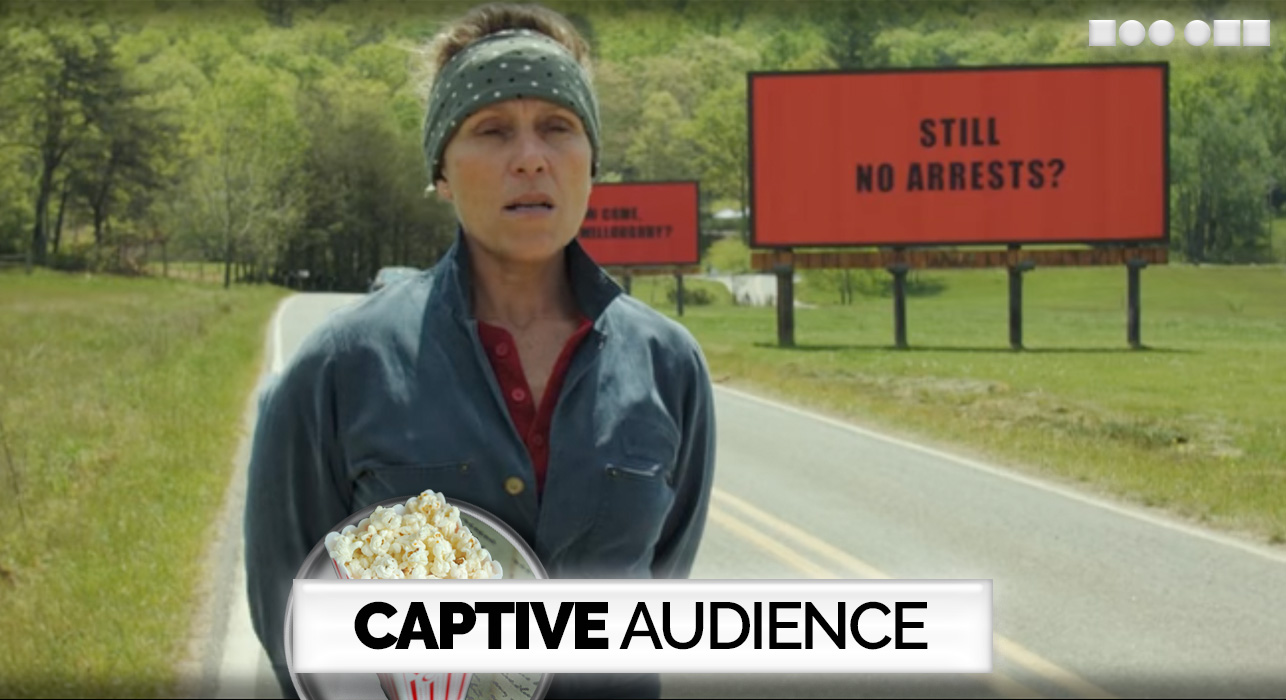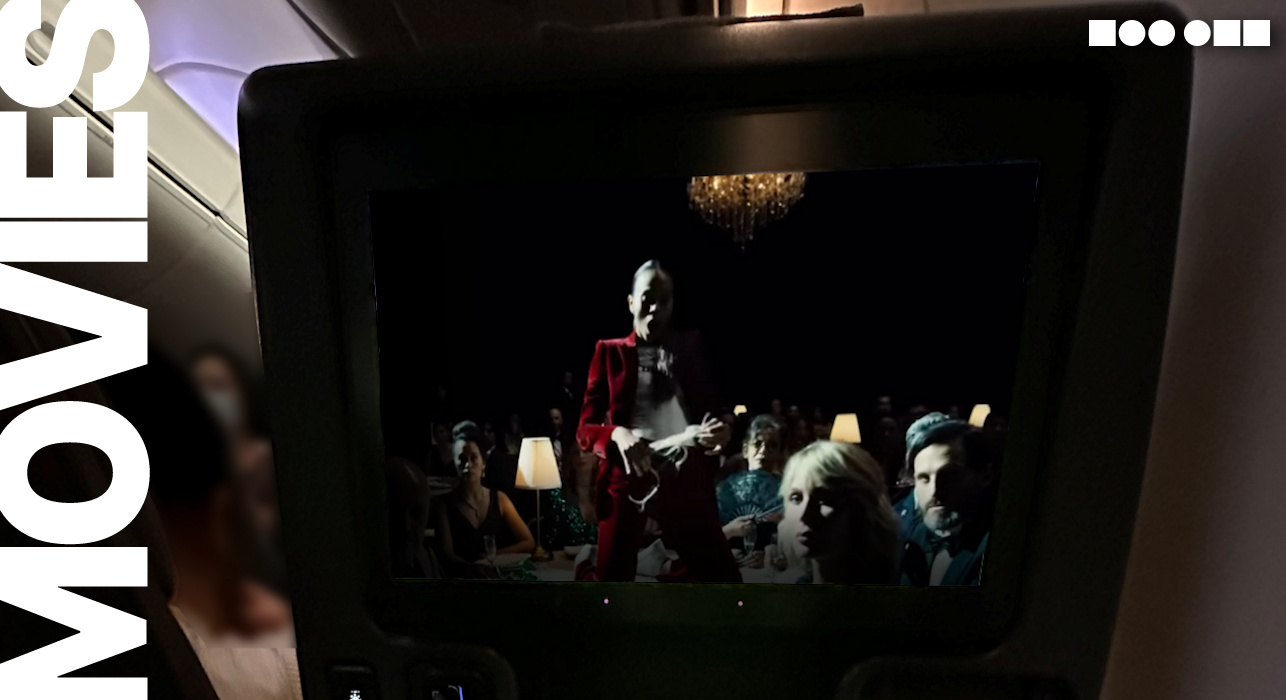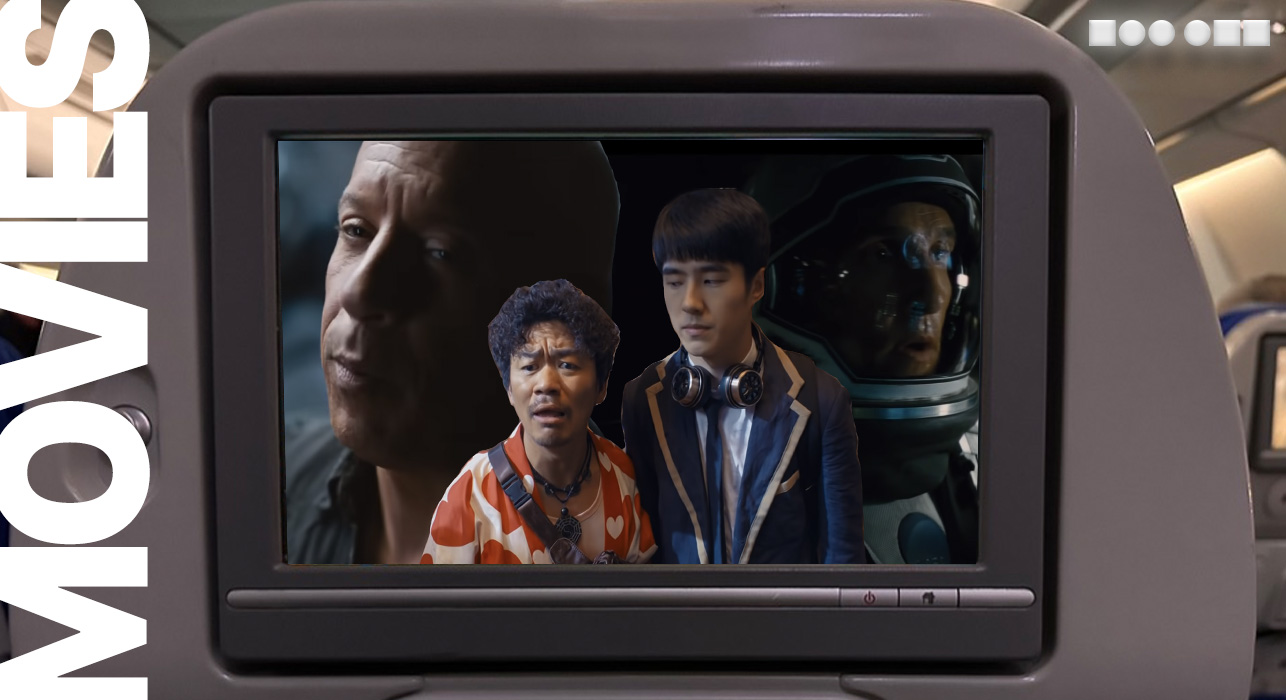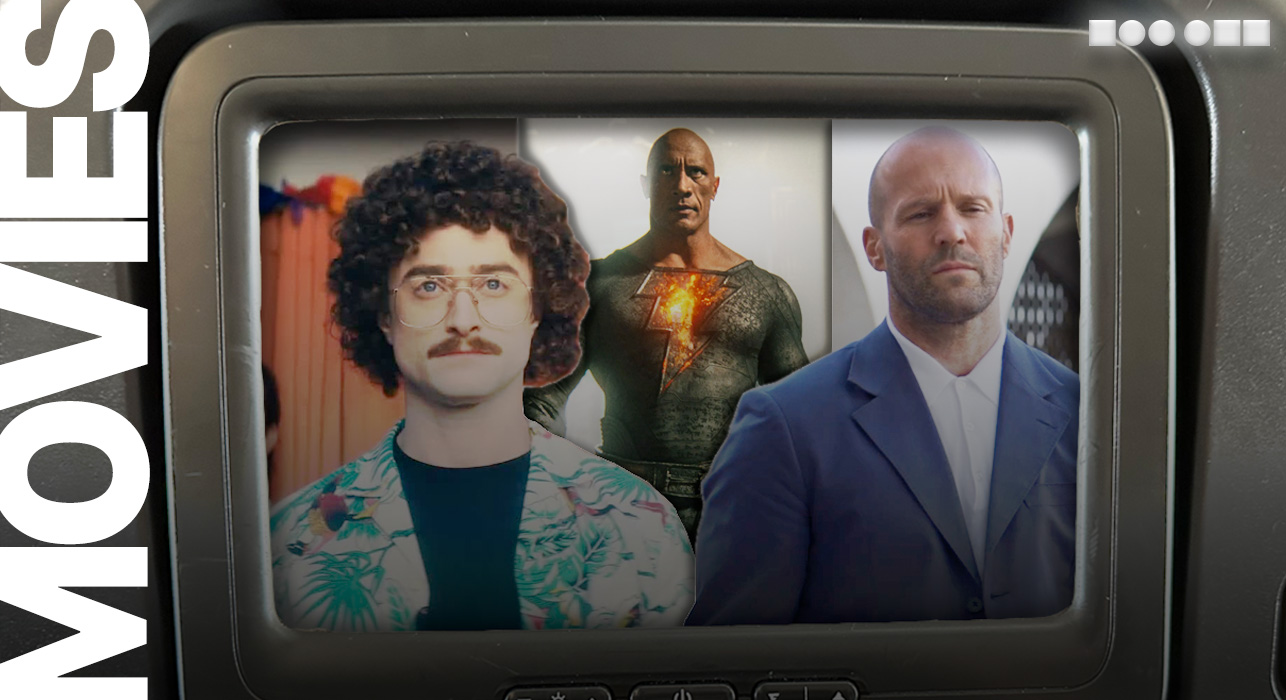I never used to believe that the famed Bowdlerised airline version of movies was A Thing. Until I saw this mother-loving shot.
This is a film I had been waiting to see for some time, but sadly my inflight experience was quite disappointing- and not for the normal reasons watching movies on a plane is sub-optimal.
Nominated for seven Academy Awards and ultimately winning two (Frances McDormand as Best Actress and Sam Rockwell as Best Supporting Actor), Three Billboards Outside Ebbing, Missouri shows us the titular billboards almost immediately. Mildred Hayes (McDormand) pays for a message to be displayed on a series of billboards on the road near her home. The message publicly calls out local police chief Bill Willoughby (Woody Harrelson) for a lack of action regarding the rape and murder of her daughter seven months prior.
The billboards put Mildred at odds with most of the local community, including her dentist, her ex-husband, and particularly the rest of the constabulary serving under Willoughby, including officer Dixon (Rockwell). While Willoughby is patient and diplomatic, Dixon becomes the main antagonist early on in the film, quick to anger and ready to defend his boss.
Not that anybody in this film is purely blameless. A recurring theme throughout is that anger begets anger, a line spoken by the new girlfriend of Mildred’s husband, and the main characters in the film seem to get increasingly unpopular the more they focus on the unsolved case. Dixon readily abuses the power he wields as a cop, while Mildred’s singular focus on the case and refusal to back down drives a wedge between her and her family.
There’s only one death in the film proper, and very little violence; the film is essentially a character drama rather than a Rollicking Rampage of Revenge. So I didn’t pay much attention to the disclaimer at the start of the film that noted:
This film has been altered from its original version. It has been edited for content.
…oh dear.
It is not a big secret that airlines show edited versions of movies. Sometimes the more graphic violence and nudity is toned down; it mostly gets a selective edit rather than being excluded completely (I’ve seen both John Wick films on flights, for example, and they didn’t overly suffer from edits). And this is fair enough; while the days of the whole cabin having to watch the same film are over, you might still feel a bit weird with your seat neighbour watching certain things, especially if you are travelling with children.
But you would think that dialogue would not be a huge problem. Everyone has heir own headsets, right? So you’re not subjecting your fellow travellers to cussing or controversy, right? You would be wrong. And Three Billboards in its edited form is absolutely terrible, and borderline unwatchable.
Very little of the movie appears to have been cut outright- some shots might have been shortened or alternate angles used in particular scenes. But curses are removed and dubbed over with alternate dialogue that sounds like it came from an entirely different movie, and at times even entirely different actors. The dialogue is so mangled, so Bowdlerised, that it veers between comic and incomprehensible.
Dixon is accused of racial abuse; Mildred at one point asks him how the Negro-torturing business is going. (I’m pretty sure the original dialogue substitutes another N-word there.)
Willoughby tells Mildred that he can’t sack racist cops because there would only be three cops left on the force, and they would still hate the figs. Exactly what figs did to inspire such anger amongst law enforcement is never made clear. (I guess the removal of a homophobic slur isn’t so bad, but the replacement makes no sense.)
In one scene, the C-bomb is replaced with “cook”, which results in this bizarre exchange:
– “I would side with you if you weren’t such a cook!”
– “Hey! There will be no cooks in this house!”
It goes on. “You’re shitting me” becomes “you’re shocking me”. Characters in denial say they didn’t see shoot. At one point a character exclaims “Judas Priest!” in frustration. And there is lots of mother-loving (such a charming sentiment!) and freaking (…not so much).
None of the language survived the edit, which makes scenes where Mildred’s anger boils over comical rather than serious, and destroys the tone of the film. Rather than getting engrossed I found myself distracted by the changes; I was waiting for the next butchered line rather than following the story.
It even affected things that were originally in the film, because I couldn’t quite believe they were intended that way; Dixon is rocking out to Abba at one point but is so out of time and such a white-guy dancer that I thought Chiquitita had been dubbed in by the censors to replace some other track. (Apparently not.)
I get that you don’t want to offend particular viewers, but the film has an MA15+ rating. It says right on the poster what to expect, and again, on the airlines we all have our own private headsets now. It seems silly that a film- especially a high-profile award winner like Three Billboards– would get destroyed in this way, and that the studio (Fox Searchlight) would think it was doing itself a favour by allowing people to view it in this state.
If you find yourself watching this version, press Stop and make a note to watch the original cut. You’ll be glad you did.






[…] Note that all of these films were viewed on Singapore Airlines flights in February 2025. I’m not seeing them as the directors intended; they are on small screens, with sub-optimal sound despite my headphones’ best efforts, and may have been edited for content. And some edits are better than others. […]